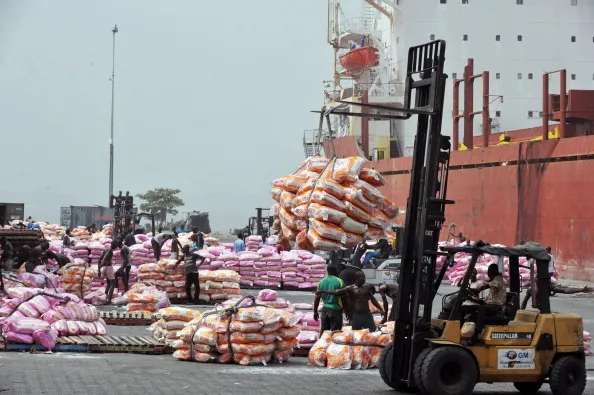
500 metric tonnes of cereals have been sent to Ghana by the ECOWAS Regional Food Security Reserve to support the country’s national response plan to the drought that impacted major grain-producing regions.
The goal of delivering rice, sorghum, millet, and maize is to make populations more resilient to food insecurity.
Dr. Bryan Acheampong, the Minister of Food and Agriculture in Accra, received the consignment from Mr. Charles Nyaye, the acting ECOWAS Resident Representative in Ghana.
Over one million individuals in Ghana and around 50 million people in West Africa and the Sahel are food insecure and in need of aid, according to the Cadre Harmonisé food and nutrition situation assessment from March 2024.
In response to the food crisis in the area, Mr. Ndiaye stated that the ECOWAS commission is giving five,370 tonnes of cereals to six nations.
In July 2024, the ECOWAS Regional Food Security Reserve provided support to Nigeria. It is now planning to provide support to Burkina Faso, Mali, Niger, and Sierra Leone, as they have all faced food and nutrition-related challenges over the same time frame.After the drought in the nation’s grain hub caused the loss of numerous acres, Dr. Acheampong, who accepted the food consignment, thanked ECOWAS for that act of solidarity.The Minister announced that starting on September 23, 2024, food supplies from ECOWAS and other reserves would be provided.
He claimed that the drought had forced the Ministry to establish more food storage facilities.
“Government has commenced the construction of a 60,000 metric tonnes warehouse under the National Grain Strategy Reserved in the Kwahu East to store grains.
“As a ministry, we are planning to build 100,000 metric tonnes each in the 16 regions,” he said.
The ECOWAS Regional Food Reserve supported six nations (Burkina Faso, Cabo Verde, Ghana, Mali, Niger, and Nigeria) with more than 55,000 tonnes of grains between 2017 and 2024.
The Reserve is the third pillar of the regional storage strategy of ECOWAS, which was adopted at Yamoussoukro, Côte d’Ivoire, on February 28, 2013, by its fifteen member nations.
Read Also: Traders Blames Irregular Rainfall For Higher Yam Prices



